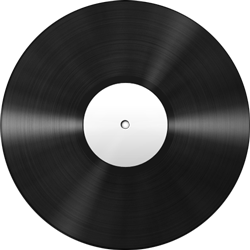For those of you that are creating musical content in the market place, you should know that the utility model of music consumption is coming — and it is a forgone conclusion, ain't nothing we can do but accept it and find a way to make a living from this spiritual imperative that we are driven by as artists to create and through our artistic endeavors to somehow make a living doing so.
So what is the utility model? Well, first let's understand that the music business is now and has always been in some kind of state of flux. To be sure, the state of flux has waxed and waned, for example, people in the music business thought the world was coming to an end when the Player Piano came out but, instead of the machines taking over the music-making, more and more people where inspired to buy more sheet music and to learn an instrument. We actually got some very needed regulation from the U.S. Government from the player pianos, as that is how we got the "mechanical" royalty that makes sure that songwriters get paid for their compositions. Then again, when the phonograph record became popular, people thought that no one would want to buy sheet music to learn to play songs in their own parlors or attend concerts when they could hear music recorded by the best musicians anytime on a disc. But, the world didn't end - and again, music sales of every kind increased.
Since the 1980's musical luminaries like Frank Zappa and David Bowie have predicted the utility model of music consumption. Explaining that music would one day flow like water from a faucet. And I belive, after years of foreshadowing, this indeed will be the case. You will find yourself paying a monthly fee, just like you do for your lights or water, hence the "Utility" model, and you will have access through your chosen provider, like Spotify, Pandora Or Amazon music, be able to play every song ever recorded at any time.
Of course, there are positive and negative aspects to this model and after all nothing is ever perfect but, let's look at the ways in which the utility model works in the favor of music fans and music creators alike. First, the idea of intellectual property and the idea of piracy will undergo a significant change. I mean, you will overnight no longer have piracy because you can play every song ever recorded anytime so there is nothing to steal. However, the idea of owning a composition will have some difficulties in this new interpretation, as the law is always behind innovation but, that is another blog post.
Also, for artists, while streaming rates are too low right now, if we increase them to something at least that of terrestrial royalties artists that have their songs played a lot will make much more than they do now.
Look at it this way... if you buy my CD or download for $10 and play that record every day for the next 20 years, I have only made $10. Or, more realistically, a small percentage of that $10 as my label management and publishers will all get a slice of that pie. But, if I get paid every time a song gets played over time I will make much more money and bands/artists that have a long career and a large catalog will really be raking in the cash.
There are lots of things to consider in this new utility model landscape and I can't cover it all here, so for now I just want to show that it is coming and we will continue our discourse of, is it good or bad and how it will take its final form in future postings.
So, how do we know that the utility model is on the horizon?
Simple:
1. Physical sales are down. Yeah, yeah, we know this. People have been bemoaning that for years. But, digital sales are also dropping off, and will over the next 10 years disappear altogether too.
2. CD's, most likely in the form of boxsets will remain viable for super-fans as will limited quantities of vinyl, for that retro sound, and audio Blu-rays for those that want 96K/24-bit audio ("audiophiles"). These are what I call boutique experiences for super-fans and collectors that still want something physical.
3. Even bands that have resisted having their catalogs available on streaming services are finding that withholding their catalog is not helping them as recently shown by Def Leppard making their catalog available.
4. Most importantly, everyone is getting into the streaming platform and making devices to allow you to take your music with you everywhere you go and now just this year, we have seen a very important indicator from the CRB or "Copyright Royalty Board" come down that means the model is closer than ever with a raise in streaming royalty rates. Again, in this post I won't get into 'net neutrality' or the need for a set of standards and guidelines like was needed in the video market to set what was and what wasn't "high definition" but, those things are important. For now, I just want you to check out this article, link below, showing how everyone sees that streaming is the wave of the future and the utility model is the only way it will work.
Stay tuned if you want to learn how to navigate the waves of the music business from a blind man with a vision. More posts to come!


